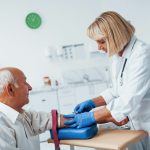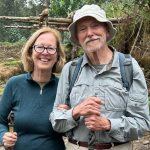Timely response leads to complete recovery for young stroke survivor
When a stroke occurs, the chance to fully recover decreases with each passing minute.
Fewer than 15% of patients make it to a hospital in time...
COPD explained: Symptoms and treatments
Chronic Obstructive Pulmonary Disease (COPD) is a progressive lung disease that makes it hard to breathe and is primarily caused by long-term exposure to...
Why it is hard to detect early-stage dementia
Dementia is a complex condition that affects millions of people around the world. Its early signs can be subtle and vary widely, making the...
Why antioxidants can boost heart failure management
Heart failure, where the heart is unable to pump blood effectively throughout the body, remains a major health concern worldwide.
Recent research has highlighted the...
Loneliness may increase stroke risk in older adults
A recent study led by researchers from Harvard T.H. Chan School of Public Health suggests that chronic loneliness might significantly increase the risk of...
Common causes of high blood pressure people need to know
High blood pressure, or hypertension, is a common condition that can lead to serious health problems like heart disease, stroke, and kidney failure.
It's often...
Common causes of gout and how to prevent it
Gout is a type of arthritis that causes intense pain, swelling, and stiffness in a joint, often affecting the big toe.
Attacks can come suddenly...
From near death to the Senior Olympics
Dan Williams of Reston, Virginia, was under a lot of stress when he felt a pounding sensation in his chest.
He thought it was probably...
Natural vasodilators for blood pressure management
Managing high blood pressure is crucial for maintaining heart health and preventing serious complications such as heart disease, stroke, and kidney failure.
One effective approach...
She didn’t know what was wrong. Neither did her dad when he had a...
Susan Koeppen was two hours into a conference call while working from her home in Kirkland, Washington, when she started feeling pain in her...










